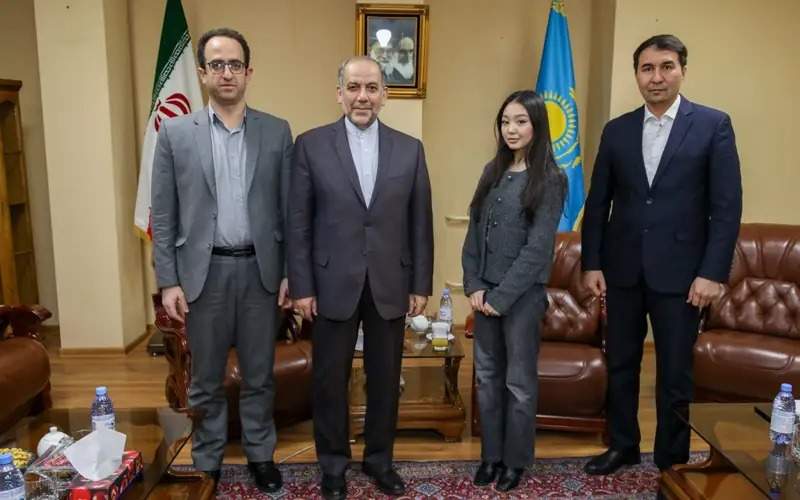Relations with Kazakhstan have always been one of our priorities – Ambassador of Iran to Kazakhstan

Amid dynamically developing relations between Iran and Kazakhstan, Kazinform News Agency correspondent interviewed the Ambassador Extraordinary and Plenipotentiary of the Islamic Republic of Iran to Kazakhstan, HE Ali Akbar Jokar. During the conversation, Ambassador Jokar voiced the Iranian side’s plans to open companies in Kazakhstan, expressed interest in energy cooperation, spoke about the prospects for extending the visa-free regime and measures to attract Kazakh tourists to Iran.
Your Excellency, how would you characterize the relations between Iran and Kazakhstan?
Despite the difficult path that the country has traveled over the past 45 years and despite obstacles such as sanctions, today we, fortunately, have achieved self-sufficiency in many sectors.
Iran's scientific and industrial progress has been indeed impressive in various fields such as power plants, nuclear power, aerospace, as well as nano and biotechnologies. I am pleased to say that we have good relations with many countries in the abovementioned areas, especially our neighbors, and I hope that we will soon develop cooperation with Kazakhstan in new fields.
After the former republics of the Soviet Union, including Kazakhstan, attained independence more than 30 years ago, the Islamic Republic of Iran became one of the first states to recognize the independence of Kazakhstan and establish diplomatic relations with it. Considering that Kazakhstan is a neighboring Muslim country, the development of relations with this state has always been one of our main priorities.
Our heads of state also have very good relationships. The latest visit of President of the Republic of Kazakhstan Kassym-Jomart Tokayev to Iran has unveiled a new chapter in cooperation between the two countries.
Speaking of cementing cooperation, last year the heads of the two states set the task of stepping up bilateral trade between Kazakhstan and Iran up to $3 billion. How are you planning to achieve this level of two-way trade?
As you know, to increase trade and economic relations, Astana and Tehran developed a Roadmap after the last visit of the former Prime Minister of the Republic of Kazakhstan Alikhan Smailov to the Iranian capital. This document was inked during the 19th meeting of the Intergovernmental Commission of Iran and Kazakhstan.
Therefore, it must be said that we are currently at the initial stage of implementing this roadmap. In the near future, the Minister of Trade of the Republic of Kazakhstan is expected to visit Iran, and mutual visits of high-ranking representatives of both countries are planned after the Iranian New Year. To successfully implement the tasks set in the roadmap, this year we will actively exchange economic delegations, which will contribute to an increase in trade turnover and economic cooperation.
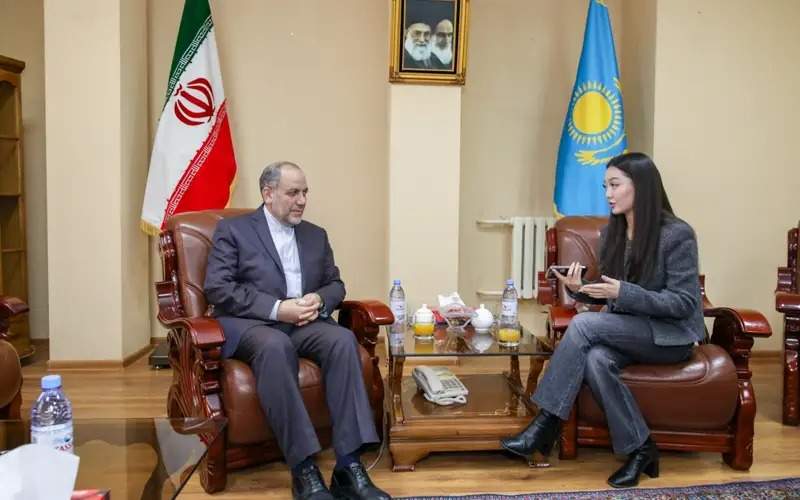
What are the main directions of bilateral trade today?
It should be noted that there are many areas in trade and economic relations between our countries that complement each other. We are neighbors in the Caspian Sea region and have vast territories and a large population, so we must make full use that potential.
One of the priority areas is the development of cooperation in the field of transport and logistics. Currently, most maritime traffic in the port of Aktau is carried out by Iranian ships. In addition, both countries are connected by rail routes through the Inche-Burun station on the border of Iran and Turkmenistan, as well as along the route through Sarakhs. The countries also develop cooperation in terms of road freight transport. For Kazakhstan Iran is one of the most convenient, closest routes for access to South Asia, Southeast Asia, Africa and the Middle East.
In the field of transport, we also have very good contacts and relationships both in a bilateral format between Iran and Kazakhstan, and in the format of multilateral cooperation, such as Kazakhstan-Russia-Iran, Kazakhstan-Turkmenistan-Iran, Kazakhstan-China-Iran.
Another key cooperation area is agriculture. Kazakhstan is traditionally our key partner in the export of grain products such as wheat and barley. Moreover, Kazakhstan actively exports meat products to Iran. Iran exports mainly vegetables and fruits, household items, furniture, building materials, polymers and so on to Kazakhstan. However, we seek to expand the range of exported goods, including more highly processed foods.
Mining is also an important area of cooperation. There are Iranian companies successfully operating over many years in Kazakhstan. And, the Kazakh government is satisfied with their activity. A mining company of Kazakhstan is working in Iran as well.
But, given the two countries’ potential, this level of cooperation is not sufficient. So, with the beginning of the Iranian New Year, we plan to increase the number of companies operating in the mining sector as well as expanding the export of products such as polymers, cleaning supplies, textile, household items, furniture and construction materials from Iran to Kazakhstan.
As you have mentioned, Kazakhstan supplies wheat to Iran, however last year its export fell significantly due to the competition with Russia. Do you believe that Kazakhstan still has a chance to stay on the Iranian market?
For Iran, Kazakhstan is one of the key partners for the development and expansion of cooperation. However, as you mentioned, the delivery of goods may decline due to the situation on the market. Businessmen may prefer to import goods from other countries for price differences. Nevertheless, Kazakhstan remains priority partner for developing relations with Iran. Therefore, despite different prices Iran will keep purchasing goods from Kazakhstan.
However, Kazakhstani businessmen and agricultural producers need to demonstrate their flexibility to retain Iranian customers and not to fall behind the global market.
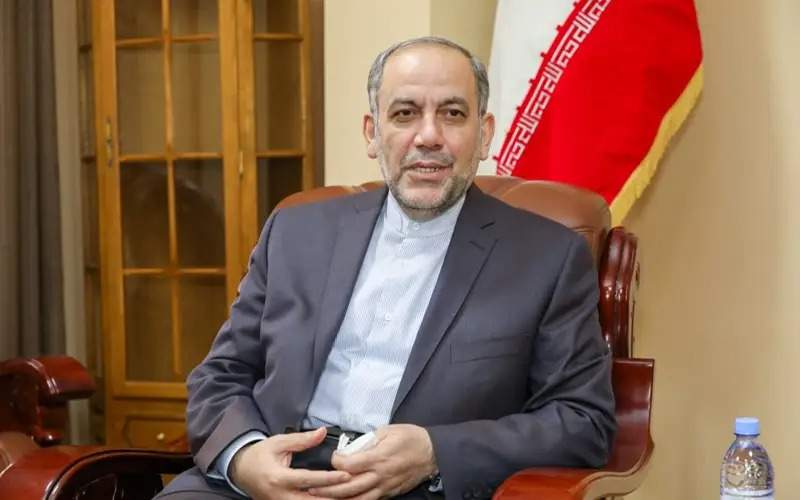
In December 2023, Kazakhstan reached an agreement to export frozen meat to Iran. What amount of meat is Iran willing to import in the next few years?
Iran traditionally exported meat from Latin America. In recent years the country has been concentrating on the region and prefers to export meat from the neighboring countries. Iran imports fresh meat from Kazakhstan every year, and during the last meeting of the intergovernmental commission an agreement was reached to import frozen meat from Kazakhstan.
The initiative gained support from the two countries’ veterinary authorities, and imports are expected to rise this year. There are no specific numbers as there has been no delivery of frozen meat so far, except for fresh meat.
Two years ago, the countries agreed to allocate a land plot to build Kazakhstani terminal in the Iranian Port of Bandar Abbas. Later, in an interview, you said that the Kazakh side had made no appropriate decision on this issue. What is the situation today? Do you know when the terminal will be launched?
Unfortunately, these projects have not been implemented yet and remained on paper. If Kazakhstan continues delaying it, the plans on the use of this land plot allocated for the construction of the terminal could change.
The Iranian embassy gives priority for Kazakhstan to use this land to build a terminal, therefore we’re concerned over the absence of a concrete decision on the use of these lands.
During his speech at the meeting of the Supreme Eurasian Economic Council in St. Petersburg, President Kassym-Jomart Tokayev suggested creating a fiber-optic communication line along the Russia-Kazakhstan-Iran route. In your opinion, what is the benefit of this project?
I would like to note that if all the initiatives on long-term plans of President Tokayev are implemented, our countries will benefit from all of them. President Tokayev is well-aware of the situation in the region as well as in the world. As you know, the communication and digital cooperation is actively developing around the world.
Therefore, once we have an opportunity to raise the speed of communication and ensure information security, this will benefit our countries. I also believe that it is a good idea and I hope it will be implemented.
Last week, Iranian minister of telecommunication and information technologies visited Almaty to participate in the joint meeting of digitalization ministers of the SCO member countries. During this visit, the Iranian minister held productive talks with his Kazakh colleague – Minister of Digital Development, Innovation and Aerospace Industry Bagdat Mussin.
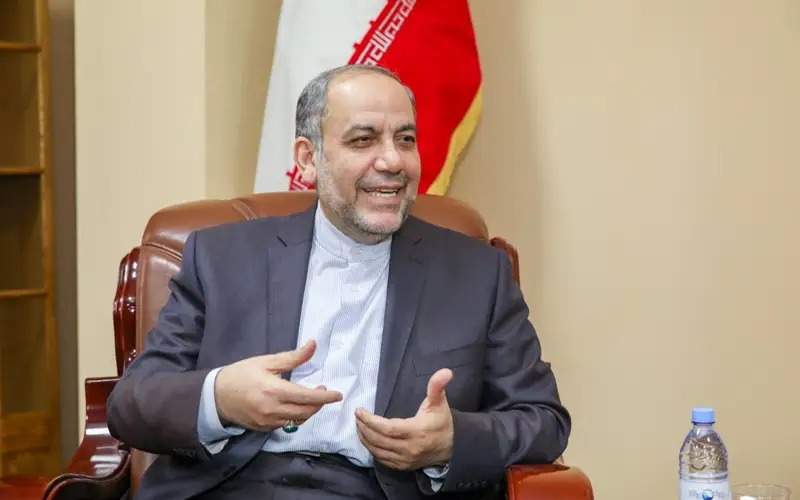
How is cooperation between Mangystau region and the Iranian provinces of Mazandaran, Gilan and Golestan developing today? What enterprises with the Iranian capital are operating in the region?
Mangystau region and the provinces of Iran have built very good relations over the past two years, due to the launch of direct flight between Aktau and the provinces of Mazandaran and Golestan. The flight lasts for one hour and 20 minutes only. It should be noted that the majority of ships entering Aktau International Port belongs to Iran. Iranian transport companies, as well as the companies dealing with construction materials and import of food products are working in Mangystau region too.
Last week, a large delegation of 30 people from Mangystau region visited Mazandaran province. I saw the report on the visit of this delegation. They had a rich program after which further cooperation areas were identified.
According to recent media reports, Iran plans to build several nuclear power plants. As you know, Kazakhstan is also exploring the opportunities in this area. In your opinion, what are the prospects for cooperation between Iran and Kazakhstan in energy sector?
We can cooperate very well and exchange experience in energy sector, especially in construction of power plants, both nuclear, and thermal ones. Iran is well experienced in the construction of thermal power and hydroelectric power plants. We can offer the construction of such high quality power plants at an affordable price.
As you know, before the Islamic Revolution we planned to build nuclear power plants together with Germany and Japan. However, after the revolution, we completed the construction of the nuclear power plant in cooperation with Russia in Bushehr.
Currently, we have plans to build four nuclear power plants, the projects of which are being studied now. We are ready to share our experience and transfer knowledge in the field of power plants construction to Kazakhstan.
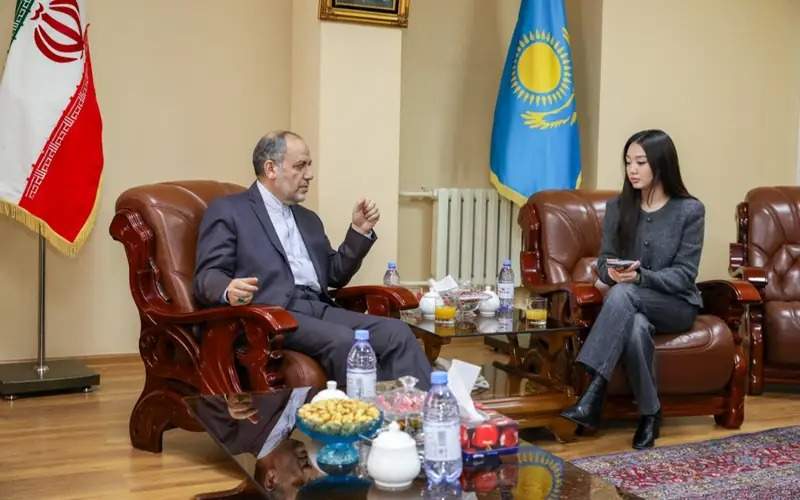
In 2022, the two countries’ leaders signed an agreement on a 14-day visa-free regime. Later it was reported that the parties intend to extend the visa-free regime for a month. At what stage are the negotiations now?
The agreement on a 14-day visa-free regime contributed to an increase in the number of tourists arriving in Kazakhstan from Iran and vice versa. As you know, we have direct flights from Almaty to Tehran, and from Aktau to the Iranian cities of Gorgan and Sari. Additional charter flights are operated in a warm season, from March to September, to bolster tourism.
The sides are currently negotiating the issue of extending visa-free period to 30 days, but the Kazakh side has not made a final decision yet. The Iranian side is ready to prolong the visa-free regime to 30 days. And, as we know, the Ministry of Foreign Affairs of the Republic of Kazakhstan is coordinating this issue together with other governmental structures. We hope that the agreement will be reached during the next consular consultations between the two countries.
Do you know how many Kazakhstanis have visited Iran over the recent years? Do you think Iran may attract the Kazakhstani tourist sector?
According to Kazakhstan’s statistics, some 3,000 Kazakhstanis visit Iran every year. That’s why one of the key directions of my work is to boost cooperation between our countries to contribute to strengthening peace and mutual understanding around the world.
Iran may be attractive to Kazakhstani travelers. For example, cities such as Shiraz, Esfahan, Tabriz, Shushtar may be of great interest to tourists interested in history. Large cities in Iran may also generate intense interest among Kazakhstanis.
Iranian Kazakhs living in Golestan Province may also be interested in Kazakhstan. Kazakhstanis may enjoy a warm climate on the coastal plains of the Persian Gulf, the Kisch island, and the beaches of Hormozgan and Bushehr provinces.
Besides, Iran boasts significant medical tourism potential. Due to the difference in exchange rates, it is very profitable for foreigners to undergo medical procedures in Iran. It is noteworthy, that skilled doctors and medical staff who have received training and experience abroad, including the USA, western countries, and Germany are working in Iran.
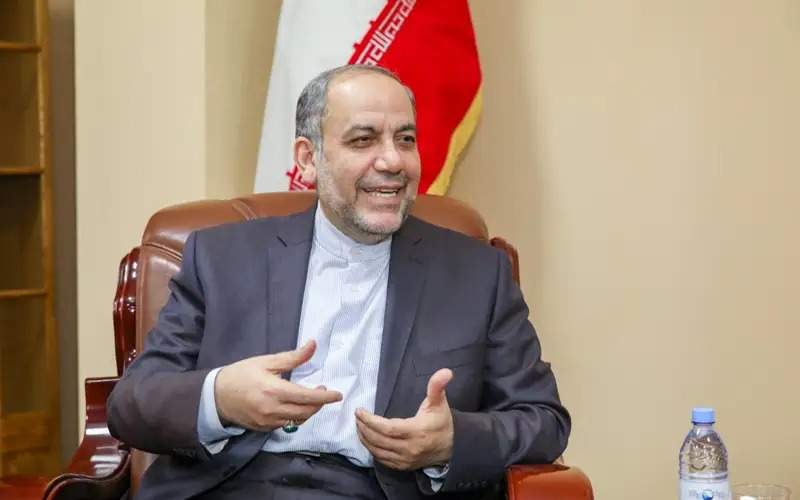
Your Excellency, could you tell us what measures are taken to strengthen cultural and educational ties between Kazakhstan and Iran?
Cultural ties underlie cooperation between Kazakhstan and Iran. Our nations have too much in common. During the recent meeting at the Science Ministry, we stressed the need to increase academic cooperation. Iran is ready to provide Kazakhstani students with 20 grants for studying at Iranian universities in various disciplines, including physics, mathematics, Persian language and literature, foreign languages, etc.
However, cultural cooperation is developing insufficiently. For example, representatives of Kazakhstan do not participate in numerous international film, theater, and music festivals held in Iran which bring together many countries of the world, including the U.S., Europe, Asia, and Southeast Asia. We should strive to expand cultural cooperation.
The World Nomad Games will take place soon in Kazakhstan and we also may take part in various traditional arts and crafts events.
Last November Supreme Leader of Iran Ali Khamenei criticized Muslim countries for trade relationships with Israel. Could you comment on the Supreme Leader's statement?
I would like to note, when criticizing, the Supreme Leader of Iran specified no country. The current situation in Gaza is not a regional conflict, it is a great humanitarian catastrophe. War crimes are being committed there. That’s why despite political views the countries should act against such calamities.
Over 10,000 children have been killed in airstrikes and attacks, but the countries remain silent. There is no guarantee that such a situation will not occur in another region. The Palestinian people have no common rights and opportunities, but they sacrifice so much.
Notably, South Africa filed a genocide case against Israel at the International Court of Justice. A temporary resolution was adopted calling Israel to stop its attacks and report to the court. This move is a reflection of the fact that all countries, as well as all members of human civilization, should take some action. This issue concerns not only Muslim countries but also entire mankind since the Gaza Strip is facing a humanitarian catastrophe.
The Supreme Leader of Iran urged at that moment all countries to prevent the conflict, and suspend trade and economic relations with Israel.
Thank you for the interview!
